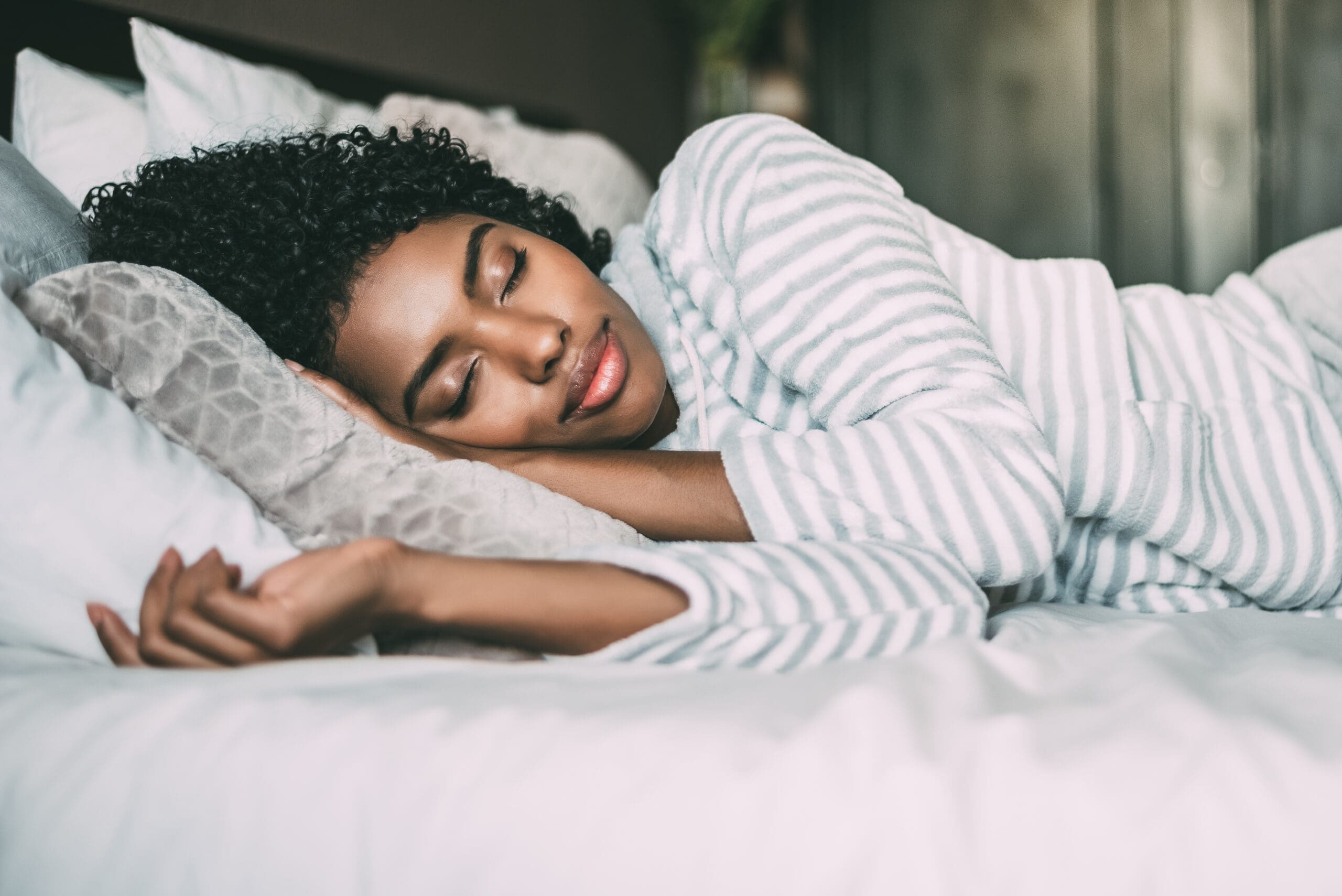If you feel like you’re always tired, you’re not alone. According to the National Sleep Foundation, about half of all U.S. adults say they feel sleepy during the day anywhere from three to seven times per week.
10 Sleep Hygiene Tips to Help You Get the Rest You Need
Chronic sleep issues are more than just an inconvenience. Sleep is the unsung hero of your mental well-being—helping with mood regulation, neurotransmitter balance, cognitive function, and more. When you’re not sleeping well, it’s next to impossible to feel like yourself.
Let’s look at some ways you can improve your sleep hygiene and get the rest your body needs.
- Maintain a Consistent Sleep Schedule
Going to bed and waking up at the same time every day, even on weekends, helps synchronize your body’s circadian rhythm. This consistency reinforces your body’s natural sleep-wake pattern, making it easier to fall asleep and wake up feeling refreshed.
- Use Your Bed Only for Sleep and Intimacy
By designating your bed solely for sleep and intimate moments, you create a distinct psychological cue that signals to your body and mind that this space is synonymous with rest. You want your brain to become conditioned to associate the act of lying down in bed with the onset of a peaceful and restful state.
- Optimize Your Sleep Environment
Creating a relaxing environment is essential for promoting quality rest. To ensure your bedroom is comfortable and conducive to sleep, consider the following:
- Declutter your bedroom and decorate it with objects that make you feel calm and relaxed.
- Invest in a comfortable mattress and pillows that provide proper support.
- Keep the room cool, ideally between 60-67 degrees Fahrenheit.
- Consider blackout curtains or an eye mask to block out any unwanted light.
- Use earplugs or white noise machines if external sounds are disruptive.
- Create a Relaxing Bedtime Routine
Developing a calming bedtime routine signals to your body that it’s time to wind down and prepare for sleep. In the hour before bedtime, engage in activities that help you relax—such as reading a book, taking a warm bath, or practicing gentle stretching. These pre-sleep rituals serve as cues to your body that sleep is approaching, facilitating the transition from wakefulness to rest.
- Limit Exposure to Screens Before Bed
The blue light emitted by screens on electronic devices like your laptop or smartphone can interfere with the production of the sleep hormone melatonin, making it harder to fall asleep. Establish a screen curfew at least an hour before bedtime. When using electronic devices is necessary, take advantage of “night mode” settings or blue light filters to minimize the impact on melatonin production.
- Watch Your Diet
Diet plays a surprising role in sleep hygiene. Here are some tips:
- Avoid heavy meals close to bedtime, since your body’s digestive process can disrupt sleep.
- Limit caffeine intake, especially in the afternoon and evening hours.
- Think twice before treating yourself to a beer or a glass of wine. While alcohol might initially induce drowsiness, it can lead to disrupted sleep later in the night.
- If you’re hungry before bedtime, choose foods that promote relaxation, such as those containing tryptophan, which is found in turkey, dairy, and nuts.
- Minimize the consumption of liquids in the evening hours to reduce the likelihood you’ll need to wake up for a midnight bathroom trip.
- Get Regular Exercise
Regular physical activity is linked to improved sleep quality, but timing your workout is crucial. Vigorous exercise raises core body temperature and stimulates the release of adrenaline, making it counterproductive if done too close to bedtime. You should exercise earlier in the day or at least a few hours before bedtime to allow your body temperature to gradually return to normal.
- Limit Naps
While napping can provide a quick energy boost, a daytime snooze can keep you awake at night if you’re not careful. If you must nap, aim for a short nap of 20 to 30 minutes earlier in the day. You want to avoid napping in the late afternoon, as this can disrupt your body’s natural sleep-wake cycle.
- Resist the Urge to Check the Clock
Constantly glancing at a clock during the night can inadvertently trigger heightened anxiety and exacerbate difficulties in falling back asleep. To break this cycle and foster a more tranquil sleep environment, keep your alarm clock or phone just out of reach. (As an added benefit, this will eliminate the temptation to hit the snooze button repeatedly in the morning since you’ll be forced to get out of bed to turn your alarm off.)
- Take Steps to Support Your Mental Health
Mental health and sleep are intricately connected. If you are struggling with conditions such as anxiety or depression, you may be experiencing regular disruptions in sleep patterns—leading to insomnia or poor sleep quality. Therapy, counseling, and medication can address the root causes of these mental health challenges and help you get the rest your body needs. Contact us today to learn more about our behavioral health services in Garner, North Carolina.






